
We get it — when you hear the words ‘green kitchen’, your brain will either conjure up memories of your aunt’s avocado fixtures (uh oh) or our earthy and elegant shaker kitchens (now we’re talking!). But on this occasion, we’re not talking about green kitchens; we’re talking about sustainable ones — a commitment we’ve focussed on since Olive & Barr Kitchens was just a name scribbled on a piece of paper.
The way we see it is this: your kitchen is the beating heart of your home and a room that sees so much action on a daily basis. From rushed breakfasts as you get the kids ready for school to dinner parties with your close friends to your home office from 8 until 6. That’s why your kitchen needs to be both functional and aesthetically pleasing. But it can also be environmentally sound, too.
From the construction methods and materials used in the build to the sustainability commitment of your chosen kitchen design company and even the energy-efficient appliances you choose, there are a dozen ways you can create an eco-friendly kitchen. Here are five of our favourites:
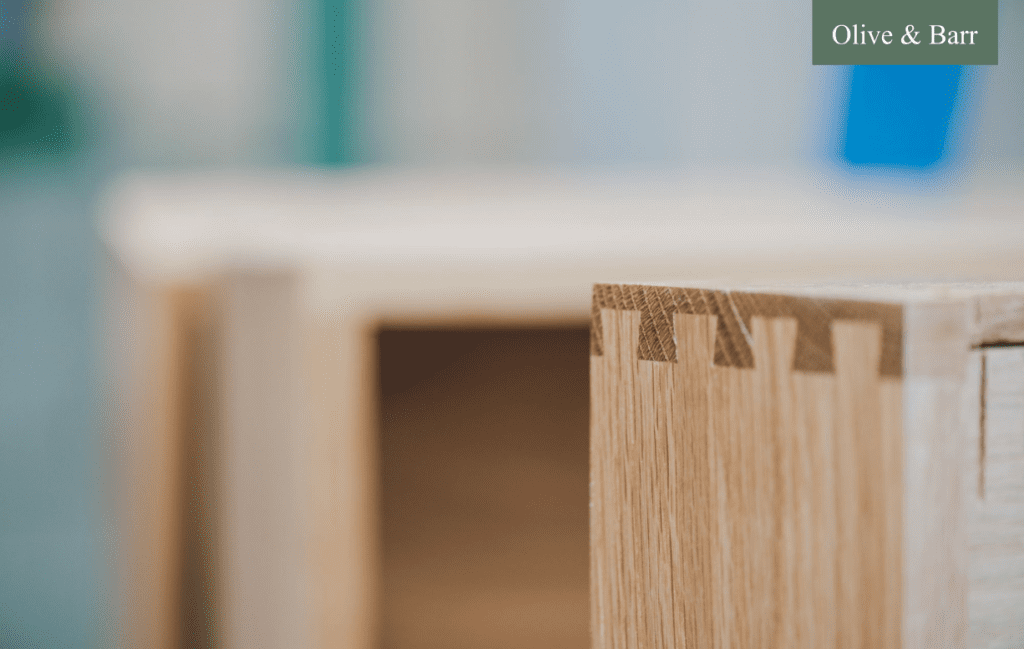
Choose Sustainable Materials
The definition of sustainable materials are those that celebrate environmental benefits throughout their life span, something we have focussed our efforts on, from the materials we source to the methods we employ when installing them. In terms of the kitchens and cabinets we make, we use local woods as our favoured natural resource and build all of our kitchens in the UK to reduce our carbon footprint and minimise any emissions when delivering our designs to you.
But using eco-friendly materials goes way further than the materials used in your kitchen counters and cabinets. They include the smaller things that make your kitchen your kitchen. Linen tea towels are more eco-friendly than cotton, our space saving wooden chopping boards and trays are immeasurably better for the planet than plastic alternatives, while beeswax wraps are a far more sustainable option than cling film.
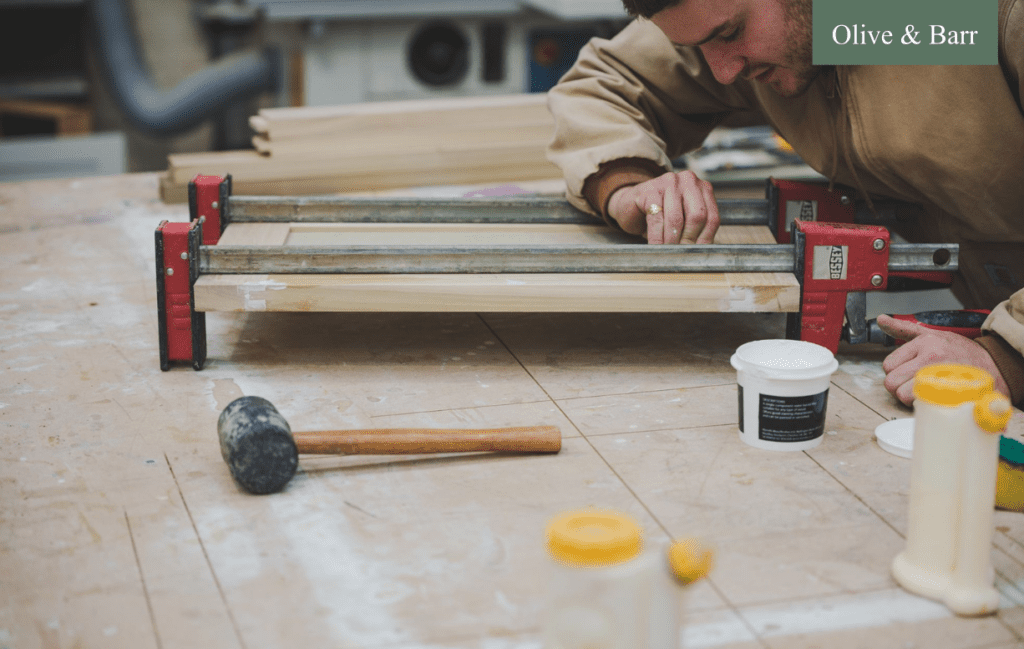
Choose Sustainable Practices
The first step to a more sustainable kitchen always involves sustainable materials, but how and where those sustainable materials are used by your chosen kitchen design company are of just as much importance. That has always been our core focus and the main reason our workshops – and artisans – are based in the UK’s West Country with a commitment to using carefully-sourced materials that are both traceable and accountable. And that is just the start.
From only using materials that are accredited by the FSC to using our timber off cuts to heat our British-based workshops to removing and recycling all of our packaging after we’ve installed your kitchen, we have found ways to make our practices, methods and techniques as environmentally-conscious as possible, and a part of our business strategy that we are incredibly proud of.
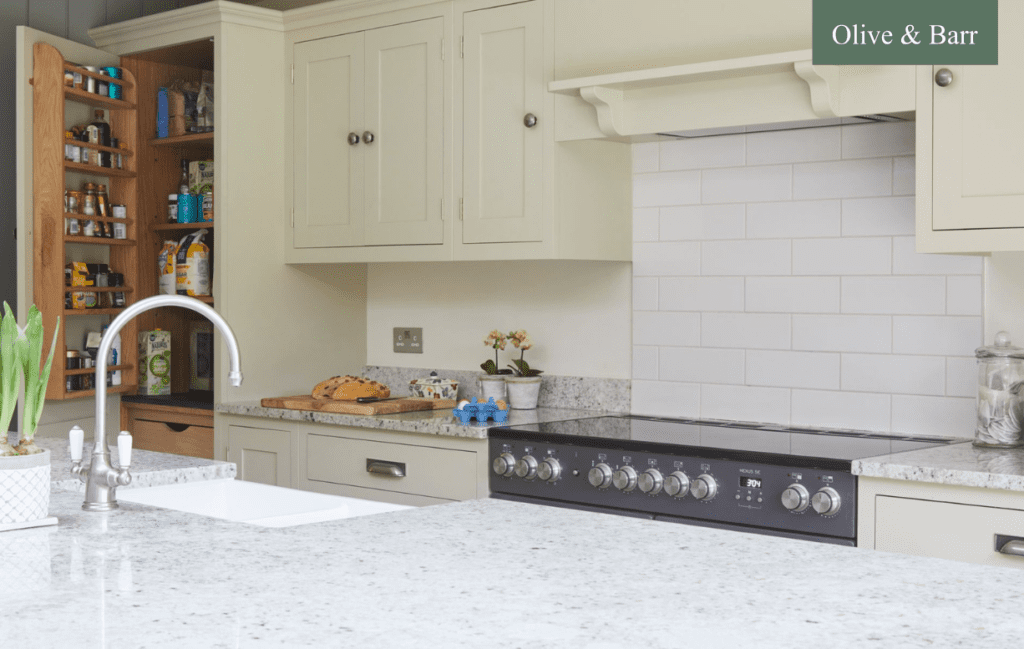
Opt For Energy-Efficient Appliances
Almost all of the modern advances in kitchen appliances have found a way to combine efficiency with eco-friendliness, a move that both helps to decrease your energy bills while simultaneously helping the environment. As such, this energy-efficient focus has long been a factor when choosing the partners we work with: Quooker, Everhot, Bora Hobs, Neff and more.
Our Quooker boiling water taps, for example, not only provide hot water on demand, but they also help tackle the £68 million of electricity that’s wasted each year in the UK while people wait for their kettles to boil. Then there’s the genius of Everhot’s electric cookers which uses a trickle feed of electricity that is just a fraction of what other electric range cookers use, and a micro-fraction of an Aga. As such, the weekly running costs of Everhot’s series of electric cookers – when left on at cooking temperatures all day and using the ECO mode overnight — range from just £11.90 to £23.80 a week depending on which model of cooker you choose. It‘s partnerships with companies like this that allow us to design and install handmade kitchens in the most sustainable way possible.
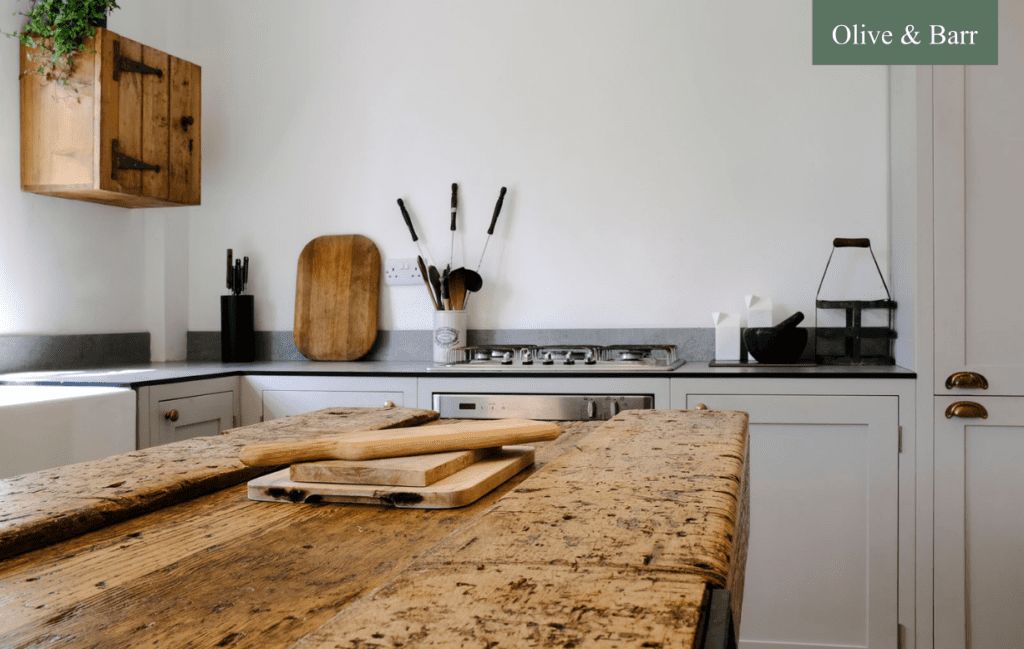
Reclaim and Reuse Wherever Possible
In the same way we reuse our offcuts to heat our workshops, using reclaimed materials in your kitchen is one of the best ways to care for the environment because not only will this prevent materials heading to landfill, but it also means less resources are used in creating your new kitchen — both natural resources and expended energy.
For those imagining themselves waking up and walking into a traditional farmhouse kitchen filled with reclaimed kitchen furniture and charmingly rustic details, going this route will sound impossibly dreamy. But opting for a kitchen that celebrates reclaimed moments doesn’t have to mean rustic. There are also places where you can buy high quality, preloved cabinets and worktops from owners that are replacing their kitchens. Alternatively, we have used reclaimed materials to create bespoke kitchens, from one-off harvest tables to rustic workbench islands.
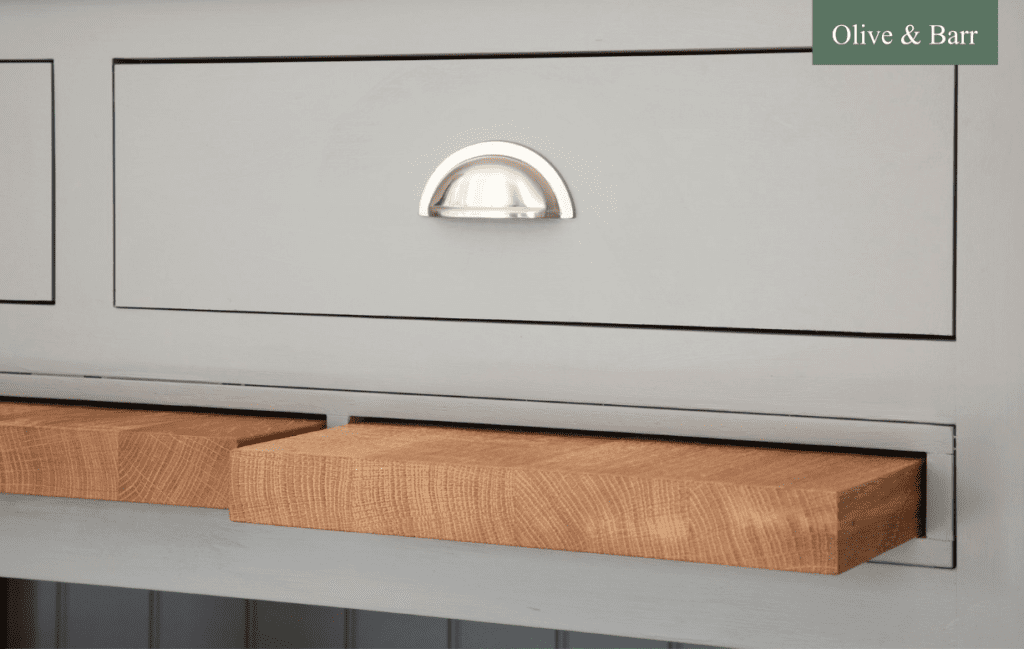
Plastic-Free Storage and Utensils
And so we get to the most obvious and easiest way to make your kitchen more sustainable: by replacing plastic throughout this hub of the home. But not only will you be helping the environment in so many ways, you’ll be able to create a more complete kitchen aesthetic, whether that’s a sleek and contemporary look or a rustic and earthy vibe.
As we all know, plastic pollution is a huge threat to the planet and that is the real reason to look around your kitchen and find ways to use less plastic, like we did when designing our kitchens. From our wooden chopping boards and trays cleverly stored in purpose-built, spring-loaded cubbyholes, to our under–the-sink wooden storage designs to our all-wood cutlery drawers, we celebrate plastic-free alternatives everywhere we could — and you can too. Wooden chopping boards, glass mason jars, stainless steel food storage containers. There are hundreds of ways to replace the plastic in your kitchen with more stylish and eco-friendly options.
Thanks for reading. For more kitchen designs and cooking inspiration, follow us on Instagram and Facebook.